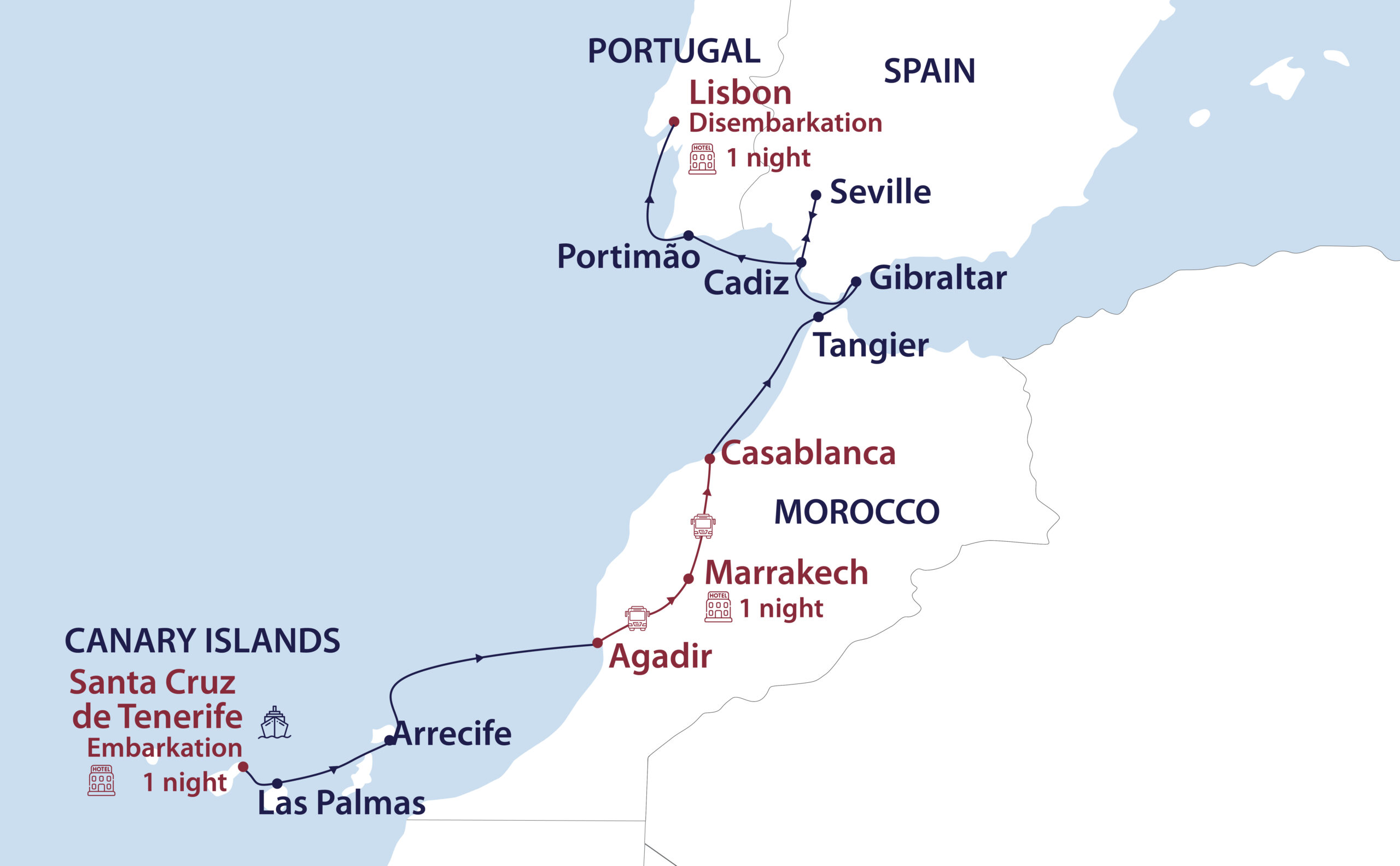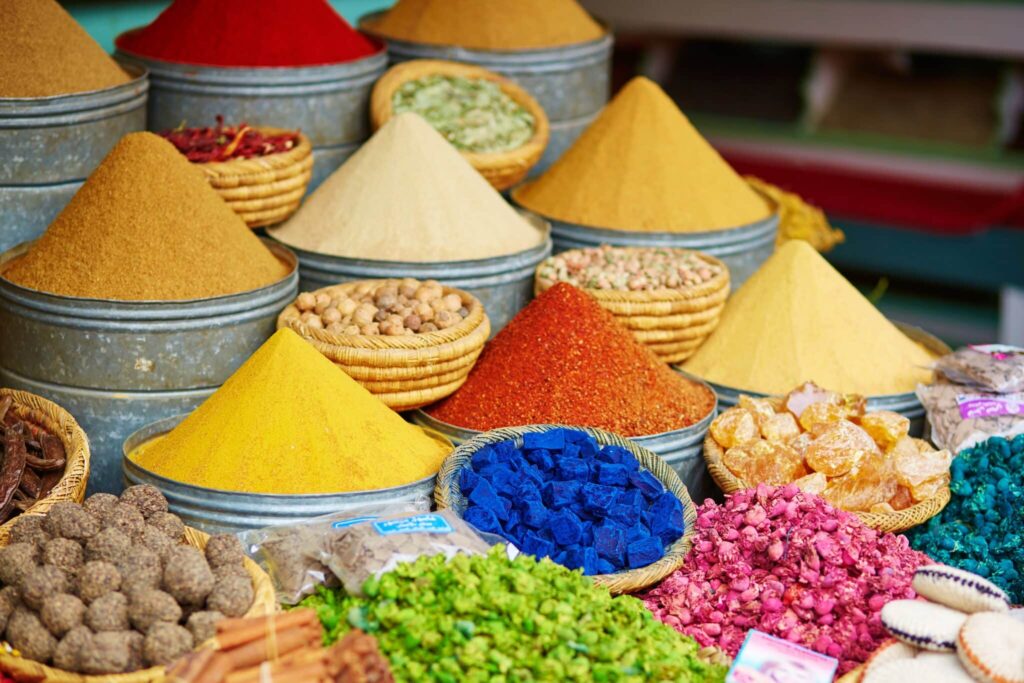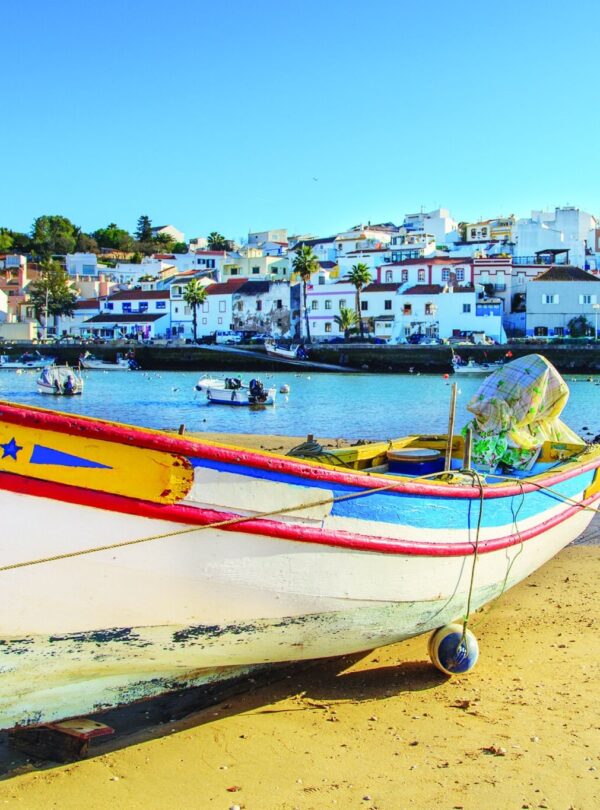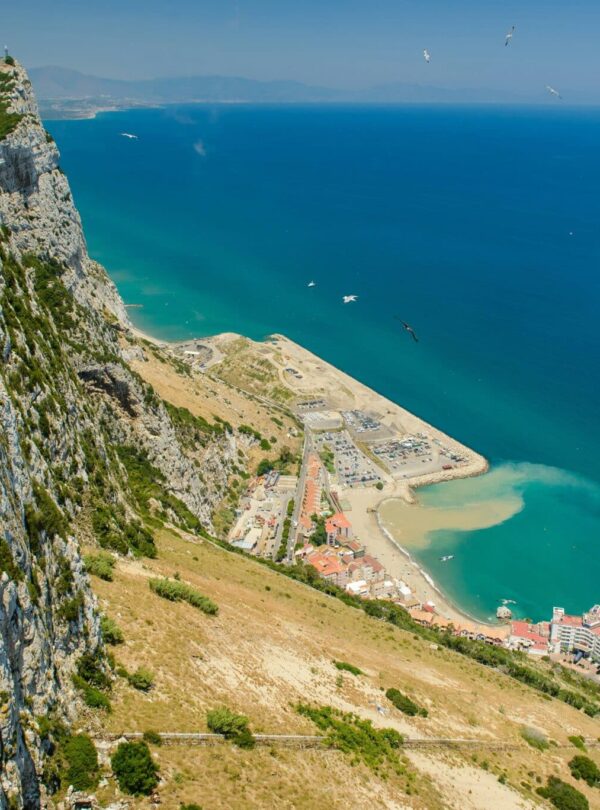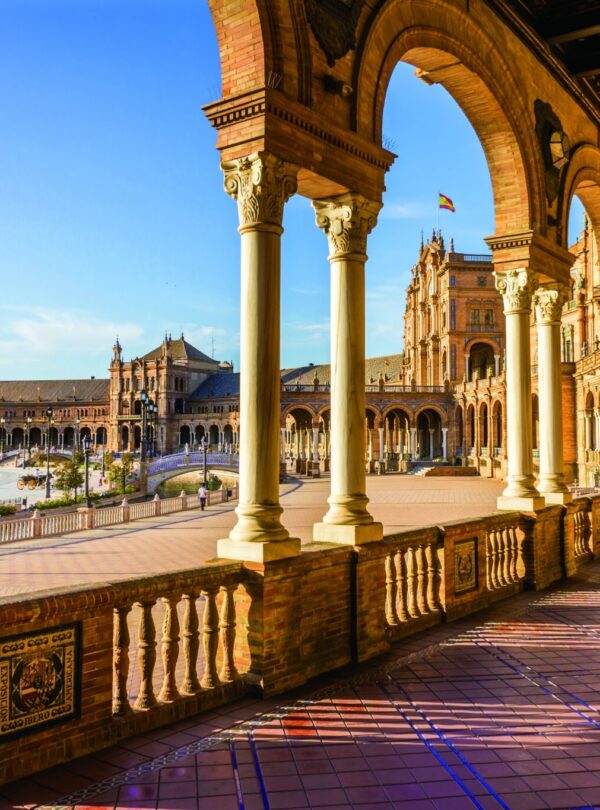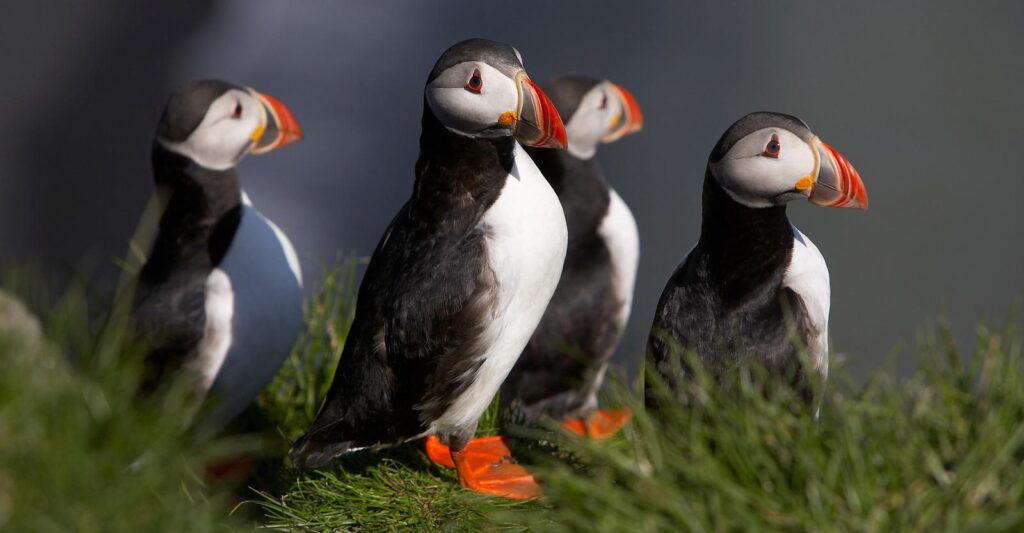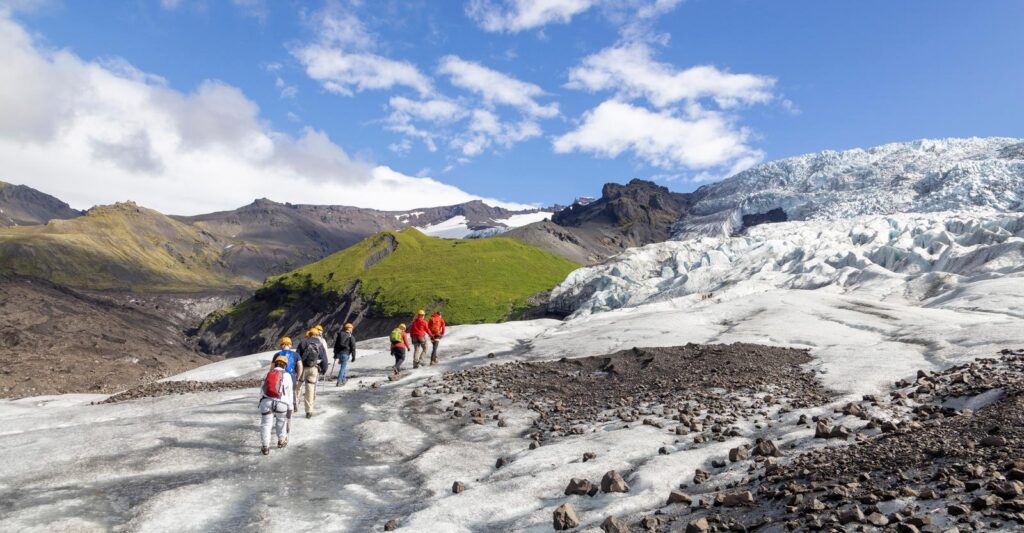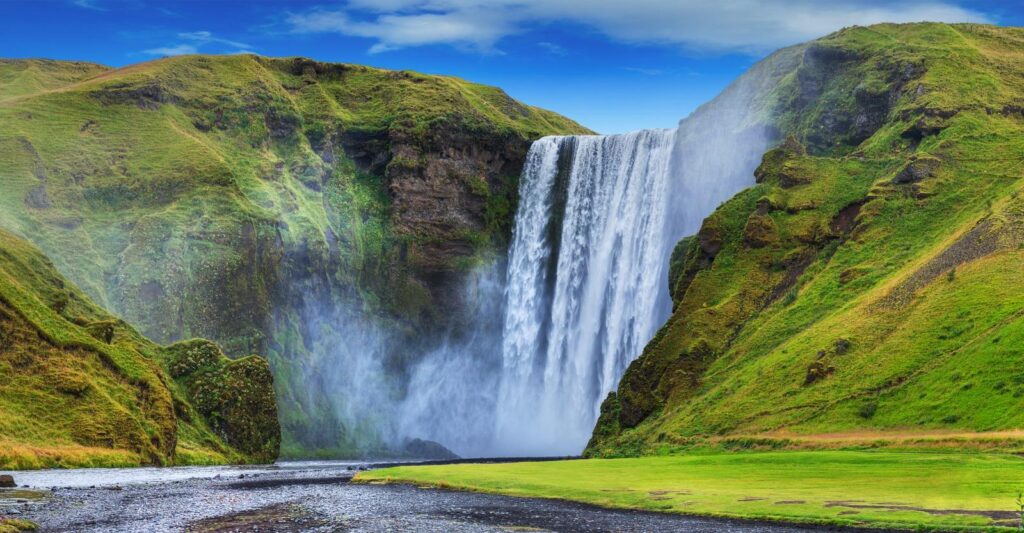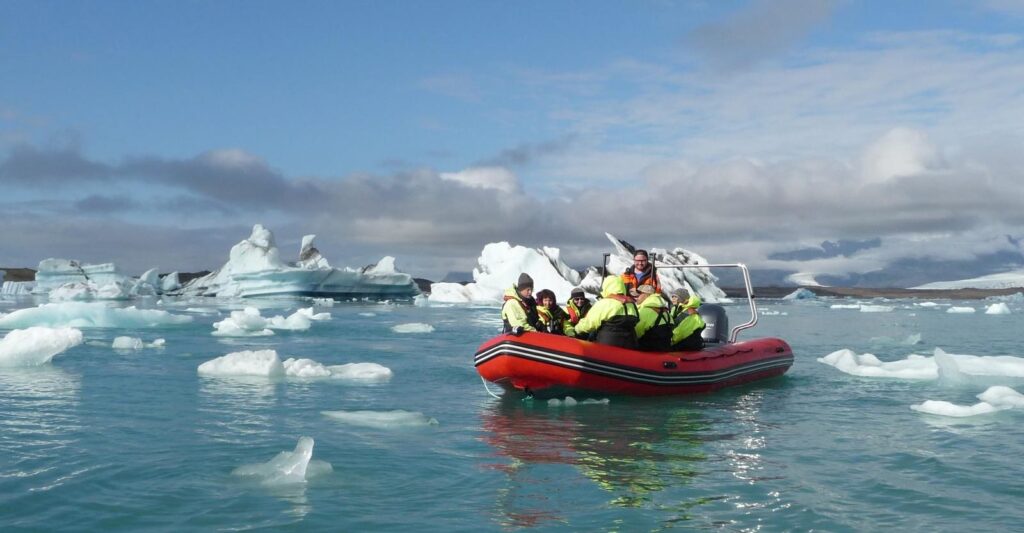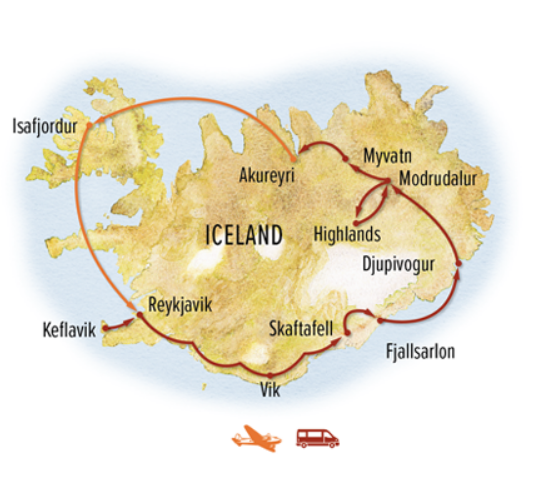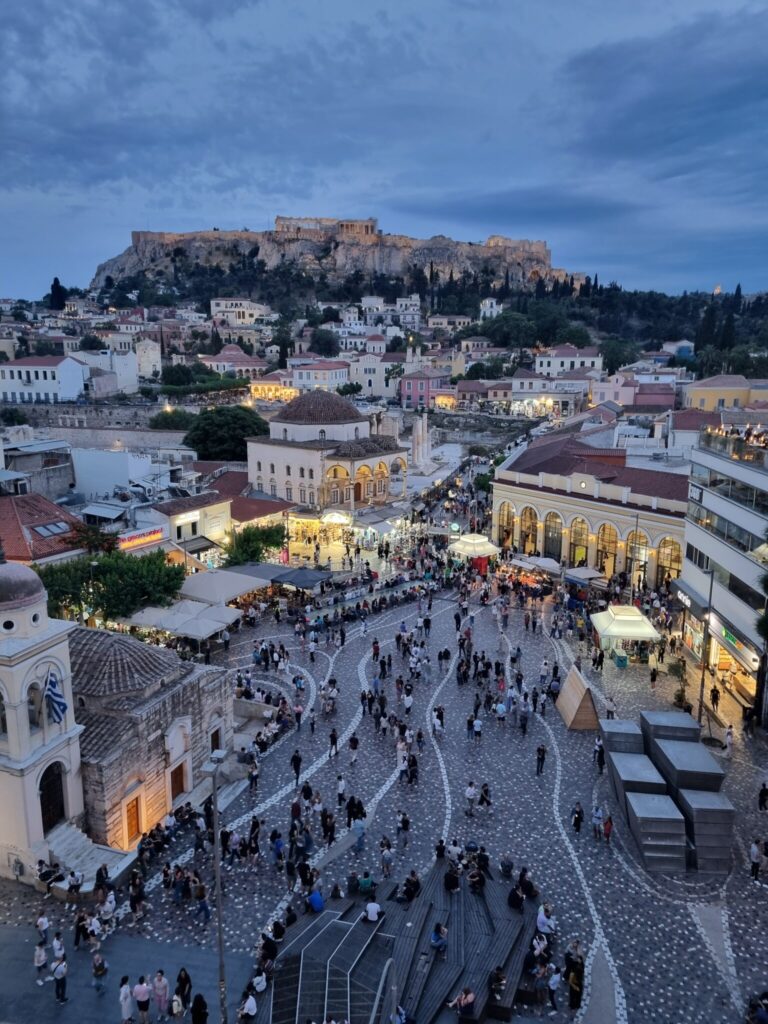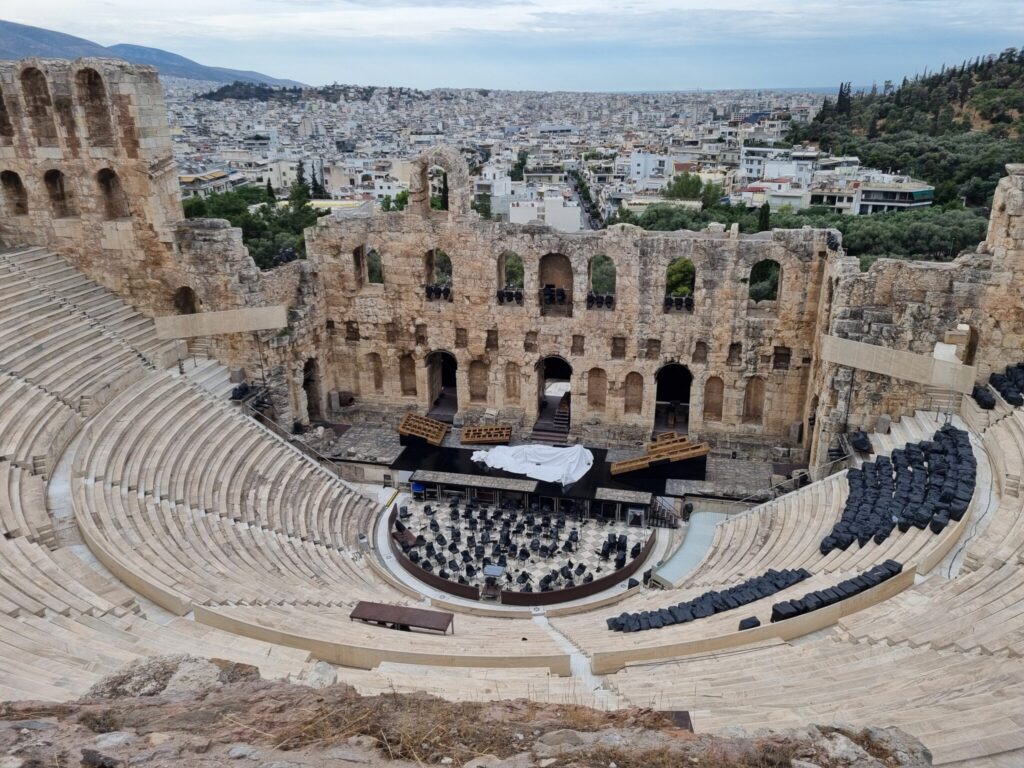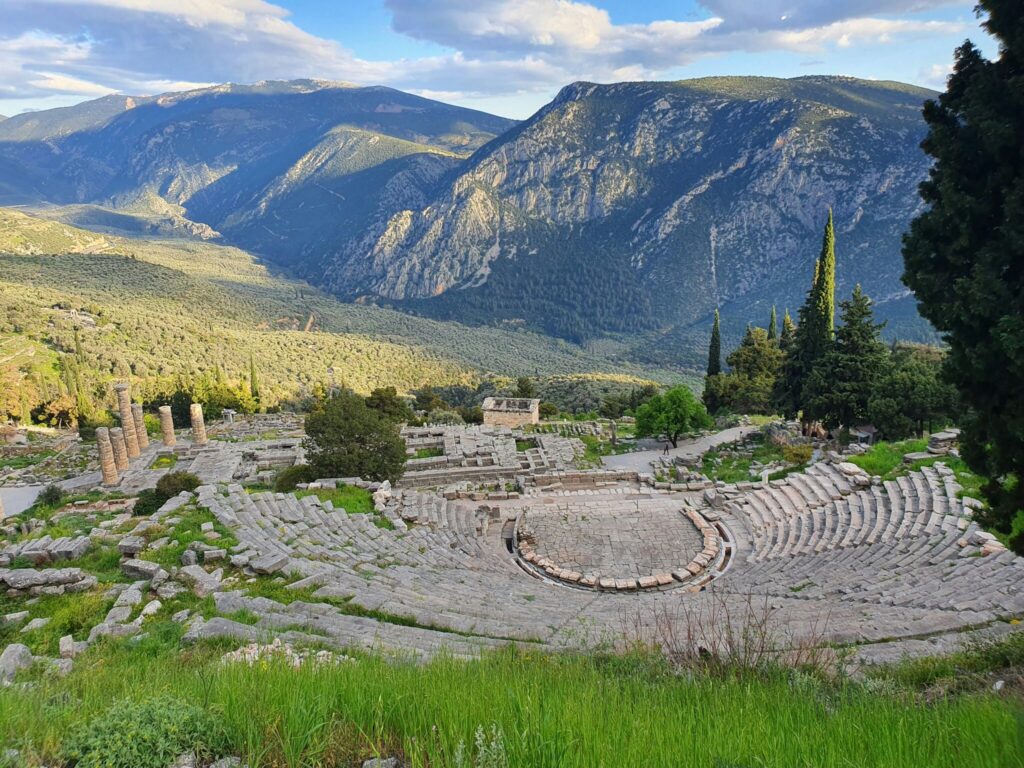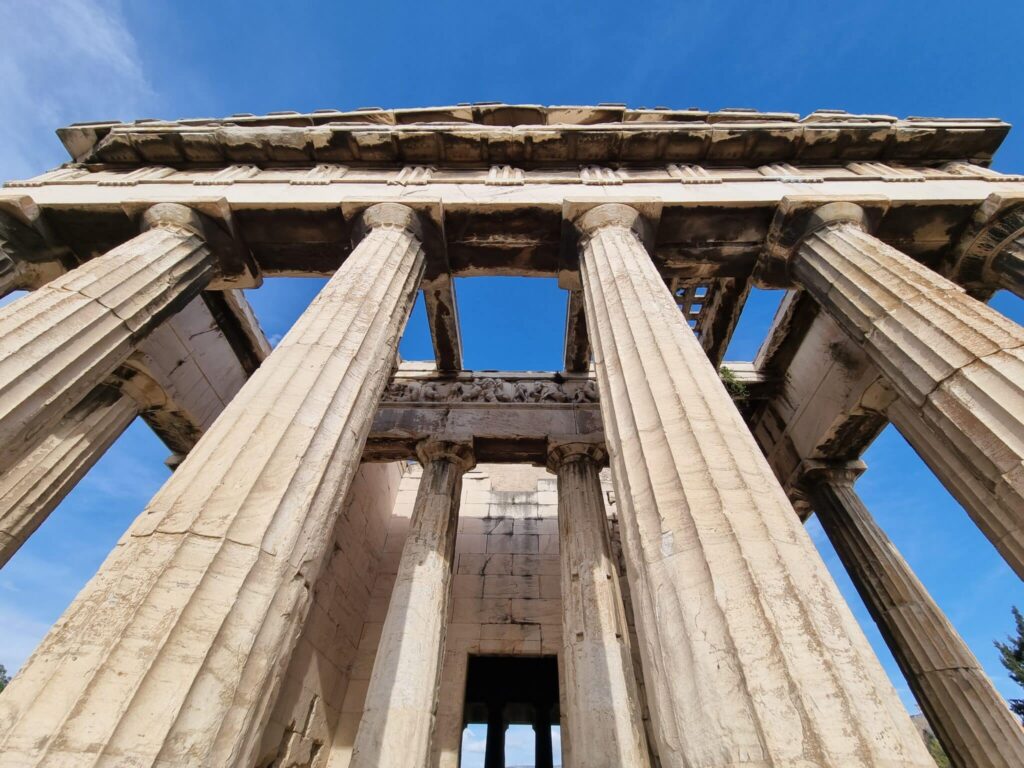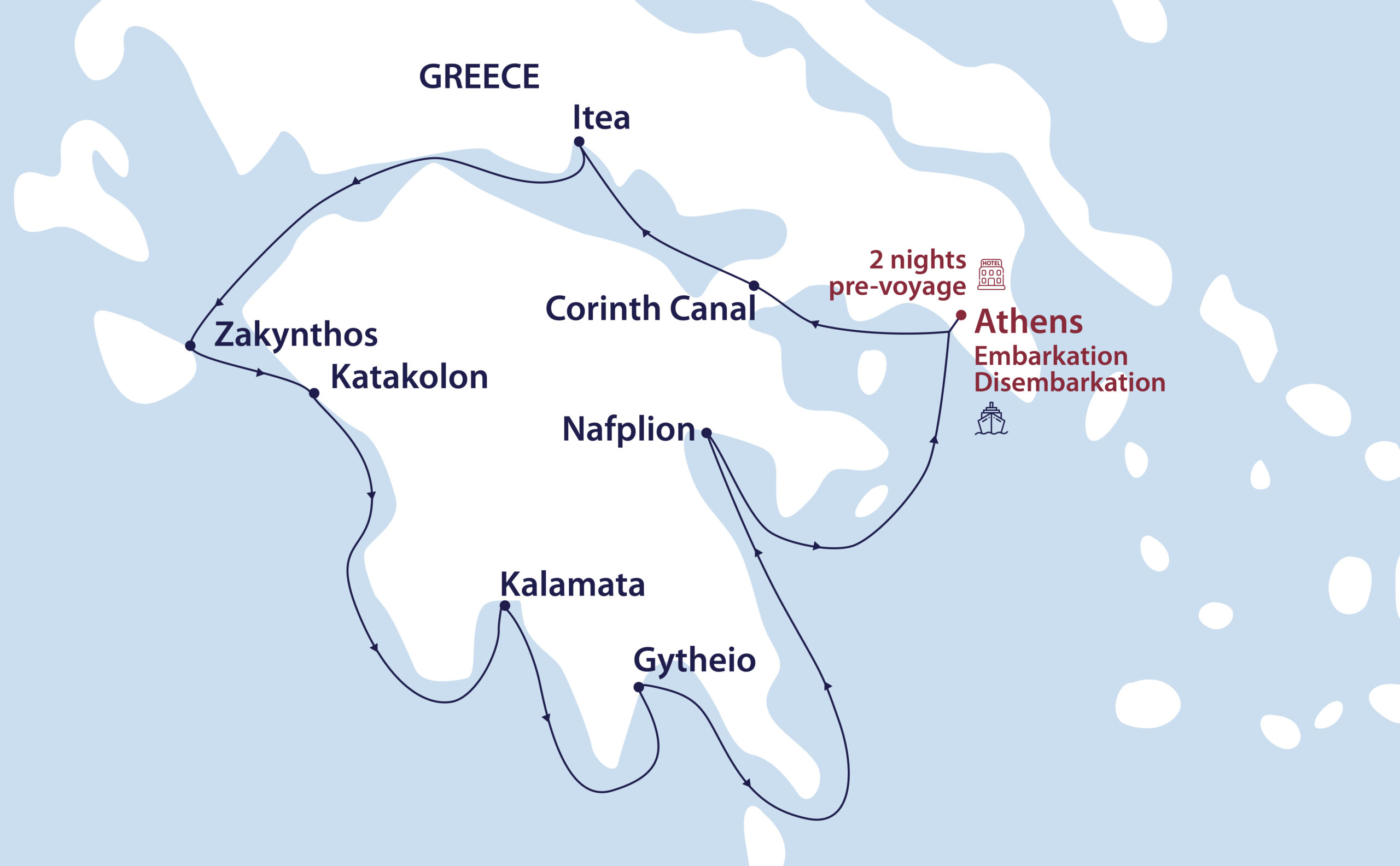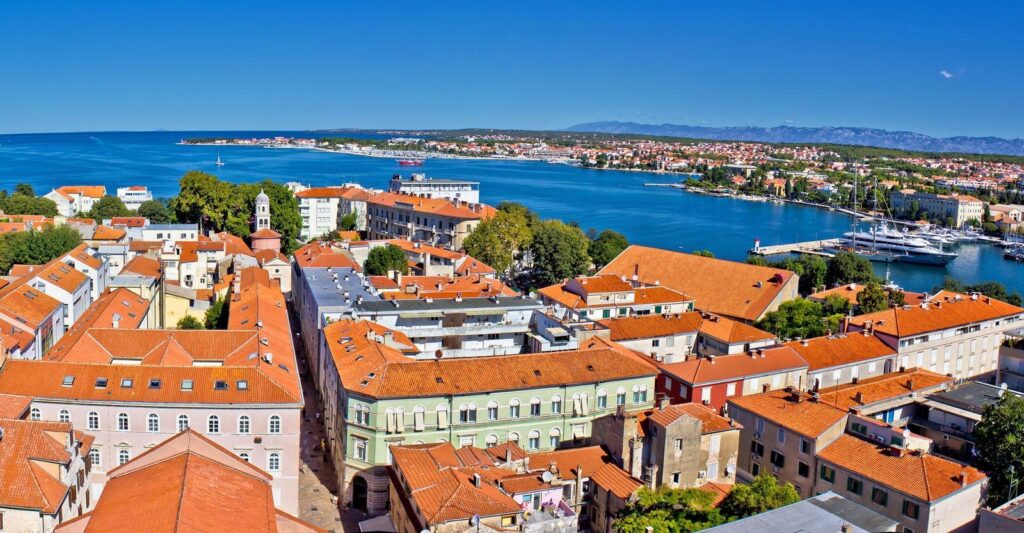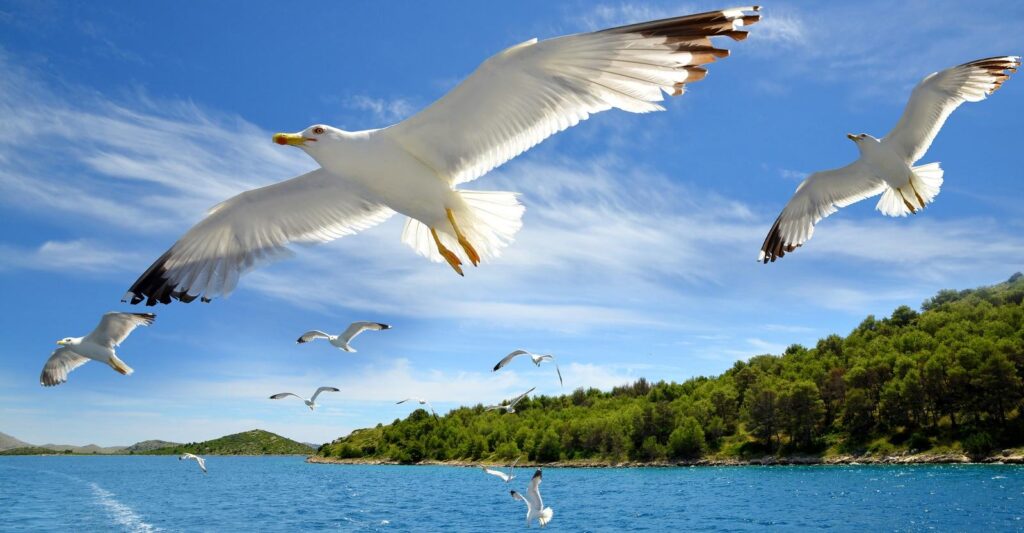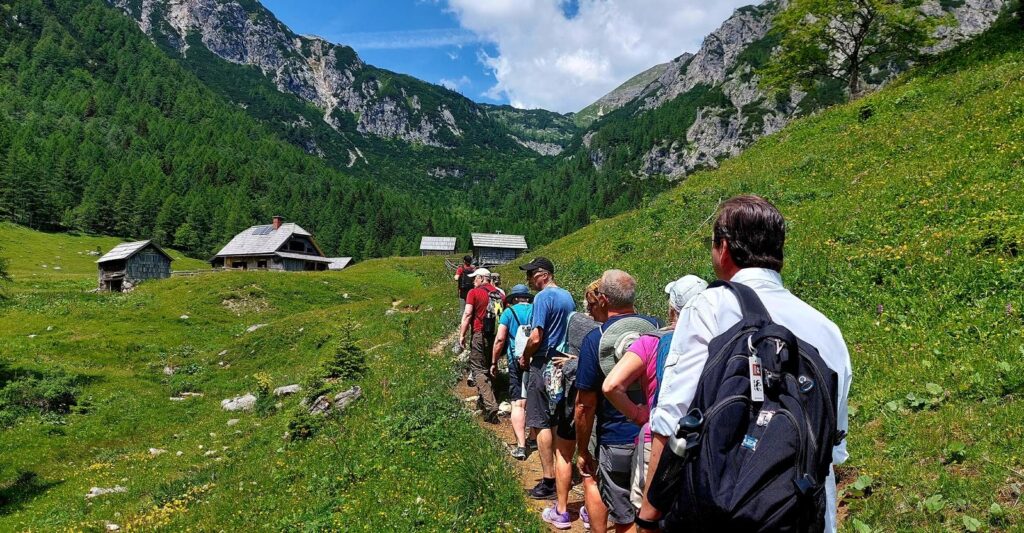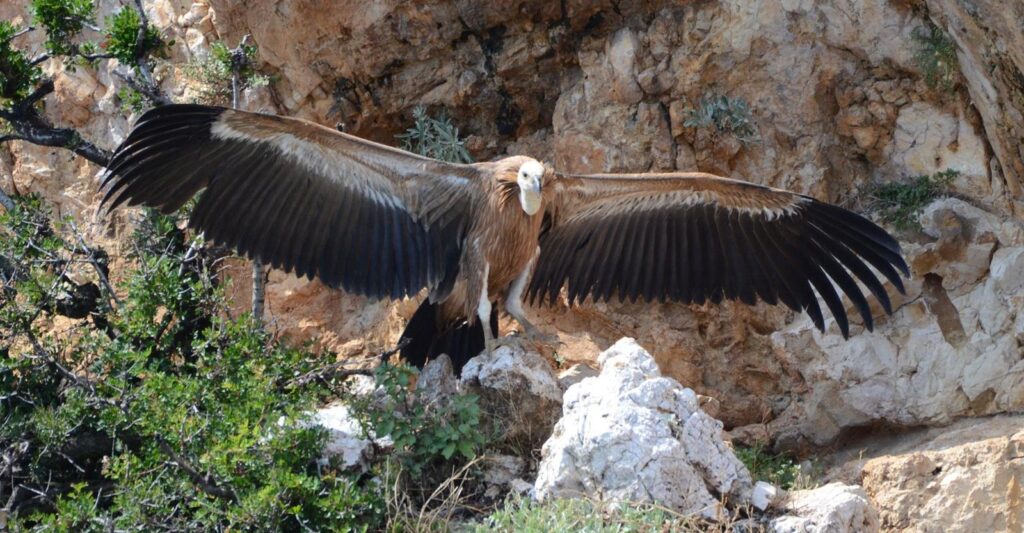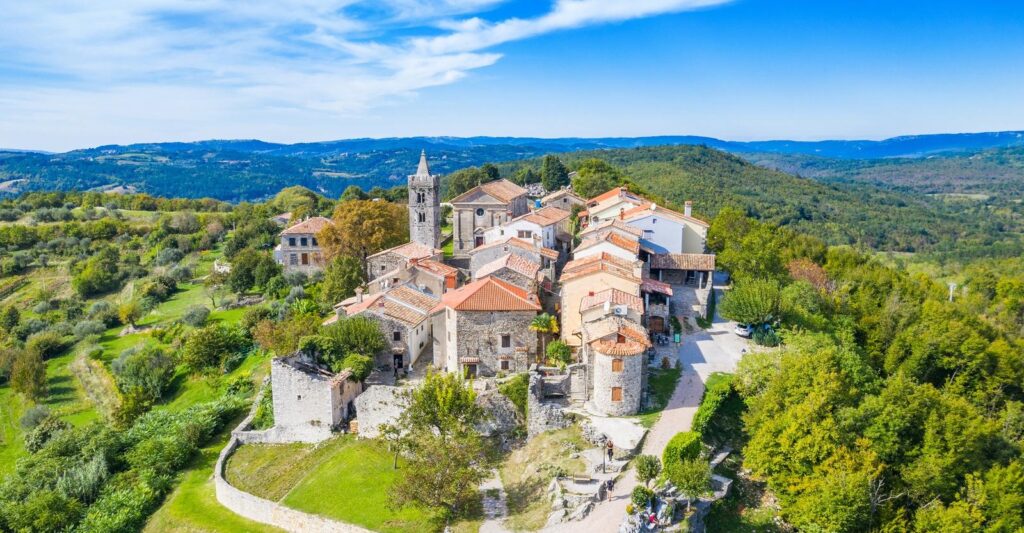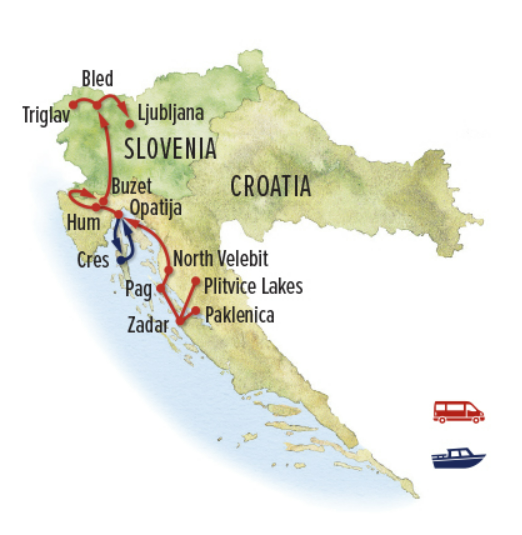Overview
This thought-provoking voyage explores the intertwined histories of the Canary Islands, Morocco, Spain and Portugal. From the Moorish conquest of Iberia to the Reconquista, and the ‘Age of Exploration’ to the tragic legacy of the slave trade, these regions have forged alliances and rivalries that influenced the world. This journey invites reflection on the human stories behind historical events, as we hear tales of the battles, trade routes and monarchical intrigue, which shaped the region’s collective heritage. From the islands of the Canaries to the medinas of Morocco, the whitewashed villages of Andalusia to the famed rock of Gibraltar and the lively laneways of Seville to the sun-kissed coast of the Algarve, we discover the enduring legacies born from centuries of resilience and the abundant cultural richness of these remarkable nations.
Trip Highlights
- Be intrigued by the volcanic landscape, quaint villages and friendly locals of the Canary Islands
- Head inland to Marrakech for an overnight excursion, where we enjoy its vibrant culture and iconic sites
- Explore southern Spain with its Moorish architecture, traditional lifestyle and whitewashed villages
- Enjoy the sun-kissed shores of the Algarve and the artisan inspired city of Lisbon
- Discover stories of intrigue at castles, cathedrals and eclectic cities with your local guides
- Spend a ‘British day out’ on ‘The Rock’ of Gibraltar
Itinerary
Welcome to The Canary Islands. On arrival at Tenerife Airport make your way to the Arrivals Hall to meet our representative, followed by a transfer to our group hotel. At the hotel, visit our hospitality desk in the lobby to meet our team who will provide you with useful information regarding pre-embarkation procedures and about your time in Tenerife. You will also receive cabin tags for your luggage. Please clearly label the tags with your name and your cabin number on the ship.
Join us this evening for a Welcome Event with a Canary Island twist!
Accommodation: Santa Cruz de Tenerife Hotel
Meals: Welcome Event canapés
While the Canary Islands are famed for their resorts and sun-soaked beaches, they offer much more than typical package holidays. These eight volcanic islands, under Spanish jurisdiction but historically linked to Africa, have a complex history that includes the early slave trade. Today, the islands stand as a testament to resilience and cultural diversity, blending influences from Spanish settlers and indigenous Guanches. The Canaries are also among the world’s most biodiverse places. Here, imposing volcanoes and enigmatic lava fields coexist with lush forests. Stark, rolling landscapes alternate with deep ravines teeming with flora, and fertile valleys end in abrupt cliffs. The islands boast a thousand colours and a blue sea, home to species unique to the Canaries.
Our day is spent on a scenic tour of Tenerife’s north-eastern region, exploring spectacular mountains, historical villages, and savouring local culinary delights. Departing from Santa Cruz, we journey to the pristine Anaga Mountains, known for their rich biodiversity and lush vegetation. The region’s unique microclimates and high humidity support ancient laurel forests and flora unique to Tenerife. Our drive takes us to the remote village of Taganana, one of Tenerife’s oldest. Here, you will enjoy a traditional meal at a local restaurant, highlighting the region’s flavours.
Our final stop is San Cristóbal de La Laguna, a UNESCO World Heritage Site and Tenerife’s historic gem. The capital of the Canary Islands until 1723, this charming city is famed for its well-preserved colonial architecture and 16th-century grid layout. Stroll through its narrow streets, admire the historic buildings and immerse yourself in the city’s rich heritage. Mid-afternoon we return to Santa Cruz de Tenerife where Douglas Mawson awaits.
For those who prefer a relaxing day in Santa Cruz de Tenerife, check-out is at 11.00am. A transfer from the hotel to the port will be provided mid-afternoon.
After boarding, we set sail to continue our exploration of the Canary Islands. This evening, enjoy a Captain’s Welcome Dinner where you will have the chance to meet our Aurora Expeditions team and crew.
Meals: Breakfast, Lunch, Dinner onboard
Known as the ‘miniature continent’, Gran Canaria is celebrated for its striking contrasts. The island offers a variety of landscapes, from beaches framed by dunes to peaks covered in Canary Island pine forests, whose greenery stands out against the dark volcanic earth. Las Palmas, the capital, combines historical architecture with modern attractions, featuring bustling markets and urban beaches. Our ‘Your Choice’ experiences offer you the opportunity to hit the beach, try local wines and explore villages among the island’s prettiest towns.
Personalise your exploration with our included ‘Your Choice’ experiences.
Option 1 ‒ Morning experience: Maspalomas Beach and Dune Experience
We head south to marvel at the breathtaking sand dunes of Maspalomas. Shaped over millennia by volcanic activity, wind erosion and the island’s unique climate, these dunes stretch for 16 kilometres along the coast, forming a dramatic landscape of shifting sands and expansive beaches. As a protected natural area, the dunes are free from vehicles, preserving their delicate ecosystem and allowing you to fully immerse yourself in this extraordinary natural wonder. Maspalomas itself boasts a kilometre-long beach of fine golden sand, with beach bars and hotels scattered along its length. You’ll have time this morning to swim, relax on the beach or stroll along the golden sands before we return to Las Palmas. Enjoy the afternoon exploring the city at your leisure before we set sail for Arrecife later in the day.
Option 2 ‒ Morning experience: Arucas and Agaete Valley Winery Visit
Discover the allure of Berrazales Winery and the charming town of Arucas. At Berrazales Winery, immerse yourself in the artisanal winemaking traditions of the Lugo-Jorge family. Their cultivation of Listán Negro vines in the Agaete Valley is a tribute to the region’s agricultural heritage. Positioned in a natural hollow near sea level, the vineyards are protected from the salty sea breeze, resulting in the production of Garn Canaria’s renowned local wines. A member of the Lugo-Jorge family will guide you through the winery, sharing insights into their craft, before hosting your tasting session, savouring wines that embody the valley’s unique aromas and flavours. Following your winery experience, explore Arucas, known for its cobblestone streets and gracefully ageing houses, before returning to the ship.
Option 3 ‒ Morning experience: Gran Canaria’s Little Venice and Puerto Rico Beach
A scenic one-hour drive brings us to Puerto de Mogán, a charming fishing village often referred to as the ‘Little Venice of Gran Canaria’. This picturesque town features a network of canals connecting the marina to the fishing harbour. Its colourful streets, adorned with blue-and-yellow-trimmed cottages with wrought iron balconies, flow into vibrant flower-filled lanes, making it one of the island’s prettiest destinations.
Next, we head to the popular beach of Puerto Rico, renowned for its almost year-round sunshine. The beach boasts crystal-clear waters, kept calm by the protection of the marina and a series of breakwaters, creating an ideal saltwater lake for a quiet and relaxing swim. You’ll have time to swim, shop, or simply stroll along the beach before we return to Las Palmas, with time to explore our host city.
Today, we explore Lanzarote, the northernmost Canary Island, known as ‘Volcano Island’ for its dramatic volcanic terrain. Lanzarote’s volcanic landscape includes expansive lava fields and uniquely shaped rocks, set against a backdrop of black and red soil that vividly contrasts with traditional whitewashed houses. Our ‘Your Choice’ experiences offer a chance to discover this diverse landscape, from dramatic mountains and golden beaches to lush palm groves, highlighting the island’s exceptional natural beauty.
Personalise your exploration with our included ‘Your Choice’ experiences.
Option 1 ‒ Morning experience: Timanfaya National Park
Timanfaya National Park on Lanzarote offers a truly otherworldly experience. The park’s stark lava fields and striking craters, shaped by 18th- and 19th-century eruptions, create a dramatic and surreal landscape. Here, guides perform geothermal demonstrations, showcasing the intense heat from beneath the Earth’s surface by igniting brushwood and triggering geysers. The park’s vibrant colours and unique formations offer a fascinating glimpse into Lanzarote’s volcanic history. With its almost extraterrestrial scenery, Timanfaya National Park vividly highlights Lanzarote’s exceptional natural beauty and geological significance. (Please note: As Timanfaya is an active volcanic region, visitors should be aware of its potential risks. Entry is at your discretion.)
Option 2 ‒ Morning experience: A Day at the Beach – Puerto del Carmen
Hop on our shuttle bus for a quick 15-minute transfer to the vibrant Puerto del Carmen. Once a small fishing village, Puerto del Carmen is now Lanzarote’s top beach resort. At the heart of it all is Playa Grande, a 4.5 kilometre stretch of dark sand lining the boulevard-style, Avenida de las Playas. This beach is perfect for a relaxing day in the Canary Islands. Soak up the sun, swim in the calm sea or try snorkelling at Playa Chica beach, located between the main beach and the harbour. For your convenience, beach chairs, umbrellas and sports equipment are available for hire. While this is not a guided tour, a local host on the shuttle will be available to answer any questions about the area.
Option 3 – Morning experience: Haria, the Valley of 1,000 Palm Trees and Le Geria Wine Tasting
On the return to Arrecife, we’ll stop in La Geria, Lanzarote’s renowned wine region. Here, you’ll participate in a wine tasting of local varieties such as malvasia and Listán Negro. The volcanic soil and circular stone walls in La Geria protect the vines from wind and conserve moisture, making it an ideal environment for these distinctive wines.
Embark on a captivating tour starting with a visit to the Mirador de Haría, where you will enjoy panoramic views of Lanzarote’s northern landscapes. From here, we explore the quaint town of Haría, home to around 1,000 residents, and known for its traditional Canarian architecture. Haría is surrounded by the Valley of 1,000 Palms. This lush area contrasts sharply with Lanzarote’s typically arid terrain, resembling an oasis with its striking landscape of palm trees.
This popular experience combines seascapes, cultural exploration, and an insightful taste of Lanzarote’s winemaking heritage.
Our voyage from Arrecife to the Moroccan coast offers a relaxing interlude during which our host will introduce you to the fascinating cultures and histories of the destinations ahead, through engaging presentations.
A day at sea affords you the opportunity to explore the ship’s amenities. Whether you choose to invigorate yourself in the gym, relax in the library, delight in a dip in the pool, or enjoy panoramic views from the observation lounge, there is something for everyone to enjoy. As we approach the Moroccan coast, the scenery transforms as the vibrant hues of the Moroccan landscape come into view, promising an array of experiences that blend the exotic with the familiar.
After breakfast on board, we disembark the Douglas Mawson at the seaside town of Agadir and begin our three-hour journey to Marrakech, where we meet our born-and-bred Moroccan guides whose passion for their homeland is infectious. Located at the foothills of the Atlas Mountains, Marrakech is an eclectic mix of centuries-old architectural styles. The fabled ochre city was founded over 1,000 years ago during the Almoravid dynasty and still beats to an age-old rhythm. Famed for its outstanding artisanship, the city has boomed as one of Africa’s key hubs for contemporary art, architecture and design.
On arrival we enjoy a taste of Morocco as we lunch at the popular restaurant before joining our guides to explore the city’s main attractions, including the Almohad wonders of the Koutoubia Mosque, the geometric zellij (mosaics) and intricate cedarwood of the former Koranic school Ben Youssef Medersa. Our walking tour introduces us to one of Marrakech’s oldest surviving buildings – the mausoleum of Almoravid Koubba. We discover the historical medina, walk through a maze of laneways and covered markets bursting with energy, and stop by the Spice Square where everything from herbs, spices, snakeskins and chameleons have been sold for centuries.
No visit to Marrakech is complete without a visit to fabled Djemâa el Fna Square. Covering an area of around 4.5 acres, this bustling space is a UNESCO World Heritage Site, renowned for its vibrant atmosphere, traditional storytellers, musicians, food stalls and market activity. We immerse ourselves in the captivating energy of this mythical square, where for centuries locals have gathered to end their day among a plethora of street food stalls, craft stands and popular cafes.
Dinner features a mezze of popular Moroccan fare, providing a delightful culinary experience before we overnight at our hotel. The next morning, we will drive to the famed city of Casablanca, where we will reboard the ship in the afternoon.
Accommodation: Marrakech Hotel
Meals: Breakfast onboard, Lunch, Dinner
Waking to our first adhan, an Islamic call to prayer, the Muezzin's emotive call conjures visions of magic carpets and spice-scented medinas. Today we leave the old Imperial city of Marrakech and continue our journey to the Atlantic Ocean, where we find the modern-day mecca of Casablanca. Morocco’s largest coastal city, Casablanca’s fame hit new heights when Hollywood set the ultimate romantic motion picture amongst the city's wartime streets.
Where else would one dine in Casablanca other than Rick’s mythical saloon – Rick's Café. This rundown 1930s riad has been transformed into an iconic Casablanca landmark. The restaurant’s current manager Issam, who also doubles as the Café’s resident piano player, will share with us the story of how the legendary ‘gin joint’ of cinematic fame was brought to life by Bill Willis, a renowned Marrakech-based American designer who first discovered the delights of Morocco with Talitha and John Paul Getty Junior.
As we farewell Rick and Ilsa, we step into modern-day Casablanca at the monumental Hassan II Mosque. The largest mosque in Africa, with a 60-storey high minaret, it is the tallest religious structure in the world. This architectural masterpiece is the most ambitious structure ever built in Morocco, taking 35,000 workers seven years to complete. We savour the atmosphere of this venerated place, and learn about the mosque's key architectural features, which beautifully blends modernism with traditional Islamic, Moorish and Moroccan elements.
Mid- afternoon we reboard the Douglas Mawson and sail north to Tangier.
Meals: Breakfast, Lunch, Dinner onboard
We arrive this morning at a city located at the crossroads of Africa and Europe: Tangier. Spend the day in Tangier or head east to the emerging artisan enclave of Tétouan. Unique amongst Moroccan cities, Tangier has a chequered past, affording us one of Europe’s most egocentric stories. Designated an ‘International Zone’ in the early 20th century, Tangier harboured no drug laws, no taxes, no banking restrictions, no censorship laws and no morality laws. Attracting a worldly mix of expat residents, it played house to everyone from eccentric British nobility to American authors, Franco’s civil war army to Nazi spies, while it awaited its inclusion in the post-war nation of Morocco. Stories of elicit affairs, underworld deals, and espionage abound in this city which remains as colourful as its history suggests.
Personalise your exploration with our included ‘Your Choice’ experiences.
Option 1 - Morning experience: Tangier Kasbah District, Kasbah Museum and American Legation Museum
We begin our journey at Tangier’s fabled Kasbah. Largely unchanged since Roman times, the Kasbah was the traditional residence of the Sultan and his harem and is now one of the most fashionable residential areas of Tangier. During a guided stroll we discover the Grand Socco. This café filled plaza serves as the gateway to Tangier´s medina and was once the haunt of Paul Bowles, William Burroughs and their Beatnik friends who gathered here to discuss life and literature while mingling among double agents and expats during the notorious time of international rule. Our next stop is at the American Legation. The first American public property outside the United States, the American Legation is now a museum that traces the history of the two countries relationship. As one of the first countries to recognize America's independence, Morocco permitted the new United States government to establish a legation in Tangier in 1821. It is the only historical monument to have remained in American possession since the birth of the American nation. Amongst several displays here is a letter from George Washington to the Sultan - Moulay Abdellah.
Option 2 - Full day experience: The Artisan Enclave of Tétouan
Little more than an hour’s drive east of Tangier lies the coastal enclave of Tétouan. This authentic whitewashed town sits at the foot of the Rif Mountains. Once the capital of the Spanish protectorate of Morocco Tétouan blends Arabic and Spanish culture and architecture. Our morning is spent exploring the UNESCO World Heritage listed medina. We walk the meandering lanes of the souk, discover the Jewish and Spanish quarters and visit the Bab Akla School of Traditional Arts and Crafts, where we observe masters instructing apprentices in 10 ancient crafts gifting us an insight into how the Kingdom keeps its ancient traditions alive. Tétouan’s numerous artisan schools have produced some of Morocco’s best painters over the past half century. They proudly encourage traditional art forms which may otherwise be lost to the modern world. Lunch is taken at a local Riad before we return to the ship.
In the early afternoon, we sail north crossing the Straits of Gibraltar, en route to their namesake.
In the wake of centuries of maritime vessels, we sail into the Port of Gibraltar early morning. More than just an array of Royal Mail red pillar post boxes, fish and chip shops and corner pubs, Gibraltar is a British Overseas Territory and naval stronghold, strategically located at the base of the Iberian Peninsula. Caught up in the legacy of the War of the Spanish Succession, it became embroiled in European politics when the King of Spain died without an heir. Thirteen years later, Sir George Rooke, an English naval commander, captured it for England’s King George I, and Gibraltar has remained a British territory ever since. Three hundred years of swashbuckling pirates, fierce naval battles, yellow fever outbreaks and world wars tell a tale of this tiny slice of Britain, simply known by those who live here as ‘The Rock’.
Our ‘Your Choice’ experiences offer a deep dive into the story of Gibraltar this morning, giving you the opportunity to further explore this British enclave independently or enjoy a leisurely afternoon on board with stunning views of Gibraltar from the deck. At the end of your tour, return to the ship or stay in town to immerse yourself in quintessential British life. Shop at Marks & Spencer, relax with a pint at a corner pub or send a postcard home from one of Gibraltar’s iconic red pillar boxes ‒ each activity offering a delightful touch of British charm.
Personalise your exploration with our included ‘Your Choice’ experiences.
Option 1 – Morning experience: The Great Siege of Gibraltar
This tour delves into one of ‘The Rock’s’ darkest periods appropriately known as the Great Siege of Gibraltar.
During a dramatic 18th-century battle, Spanish and French forces sought to retake Gibraltar from the British. This intense battle aimed to reclaim the strategic fortress, vital for controlling the crucial naval passage into the Mediterranean. Our locally guided tour offers an insight into the harsh realities faced by the garrison and civilians, such as severe food shortages, when people survived on seaweed and wild onions. We uncover the stringent discipline enforced, including whipping, with one drummer receiving 30,000 lashes in 14 years. Diseases like smallpox and influenza were rife, and scurvy spread easily due to the lack of available fresh produce. Despite only receiving one relief convoy per year, the 5,000 troops heroically defended Gibraltar against 60,000 troops and 49 ships. During the tour you will explore the ingenious Great Siege Tunnels carved from solid limestone, which played a vital role in the fortress’s defence. This tour showcases the resilience that cemented Gibraltar’s reputation as ‘Strong as the Rock of Gibraltar.’
Option 2 – Morning experience: Highlights of ‘The Rock’
This quintessential British tour of Gibraltar showcases the Rock’s rich history, iconic mascots and breathtaking views across the Straits of Gibraltar. Begin with a scenic drive along Winston Churchill Avenue, a tribute to the 1967 referendum when Gibraltar’s residents overwhelmingly voted to remain British rather than join Spain. This historic choice remains a cornerstone of Gibraltar’s identity. Next, take a cable car ride to the Top Station, where you will meet Gibraltar’s famous macaques – also known as Barbary apes – the tail-less monkeys that proudly serve as The Rock’s mascots. Roaming freely, they are a charming highlight of the tour.
From the top of The Rock, delve into the depths of St Michael’s Cave. Experience ‘The Awakening,’ a cutting-edge installation that uses 360-degree light projections and immersive audio to reveal the cave’s geological formation and rich history. This modern twist on a natural wonder offers a captivating blend of nature and technology, providing a striking contrast before we return to the comforts of our own advanced technology, Douglas Mawson.
In the early hours of the morning, we navigate the waters of the Guadalquivir River arriving at Spain’s most famous southern city, Seville, mid-morning*. The Guadalquivir has been a central part of Seville’s history and a launchpad for significant voyages. From its banks, explorers like Ferdinand Magellan embarked on their landmark journeys, including Magellan’s famous 1519 expedition to circumnavigate the globe. The river was also crucial for trade, linking Seville with distant lands and shaping global commerce.
In the 8th century, the Moors—a diverse brotherhood of Arabs, Berbers, and North Africans—arrived on the Iberian Peninsula and, like a child leaving home, remained away from their homelands for nearly 700 years. They brought with them a spirit of tolerance, coexisting peacefully with Christian and Jewish communities while ruling over the land through small kingdoms characterized by castle-topped villages and fortified cities. Their remarkable contributions in mathematics, astronomy, and Moorish architecture left a lasting mark on Europe.
The southern region of Andalusia was their crowning achievement, with Seville standing out as its jewel. On our excursion, we'll navigate the narrow Guadalquivir River to reach Seville, immersing ourselves in its vibrant atmosphere both day and night. Much of the city's allure comes from its Moorish legacy, with the unique Mudejar style—blending Moorish and Christian architecture—visible throughout its streets, squares, and majestic buildings, showcasing its rich history. We moor at the city port, which is within walking distance of the city centre.
Choose to spend your time in Seville, combine time spent in the city independently with a visit to the nearby medieval city of Carmona, or join us for an unforgettable experience as we attend a Flamenco show, immersing ourselves in one of Spain’s most iconic traditions. We sail mid-evening, returning to the river and following its path to the coast, where it meets the sea at Cadiz. (*as Seville is a piloted port our arrival time will not be confirmed until closer to our date of arrival, therefore the times of the excursions may need to be adjusted)
Personalise your exploration with our included ‘Your Choice’ experiences.
Option 1 - Afternoon experience: Walking the Heart of Seville
Our local guide tells a tale of Seville supported by a host of history’s famed conquerors, stories of the ‘new world’ and a clash of cultures should read as famous as the buildings we visit. Built in the 14th century as a Mudejar style palace, The Alcázar is the oldest European monarchial residence still in use. Moorish influences join forces with tokens of Gothic, Renaissance, and Baroque style added by later Christian kings, all with harmonious charm. Islam and Christianity vied for power in this city, with the might of Christianity being victorious by building Europe’s third largest cathedral right over the top of a 12th century mosque. The largest Gothic structure in the world, the cathedral houses many famous souls. In 1899, 400 years after his death, the renowned explorer, Christopher Columbus, finally found an eternal place to rest, in Seville Cathedral. Towering over the cathedral is Seville’s crowning glory – UNESCO World Heritage listed Giralda tower, which was inspired by Marrakech’s Katoubia mosque. Christian overlords allowed this Islamic minaret to remain albeit as the cathedral’s bell tower. Its top storey heralds a Renaissance motif, that was added in the 16th century, affording travellers one of the greatest cityscapes throughout Spain. Our stroll of Seville continues through the Barrio Santa Cruz, Seville’s once-thriving Jewish quarter. This maze of alleyways is full of plazas, tile-covered patios, and whitewashed houses draped in flowers, leading us to Plaza de España, Seville’s spectacular central square – the perfect end to a delightful amble through Seville.
Option 2 – Afternoon experience: The Medieval Town of Carmona
Situated on the plains of the river Corbones, Carmona tells a tale of the various cultures that have populated the peninsula throughout its extensive history. Churches, palaces, and city walls form part of the city’s heritage in its historic quarter, dominated by the imposing Alcazar. Its impenetrable Gate of Seville is a warning to marauding armies. A testament to sound engineering this ancient gatehouse dates to the ninth century and thanks its solid design to the Romans, and its horseshoe archways to the Moors. Indeed, the culture of all the inhabitants of the peninsula, whether they be the western Mediterranean peoples, the Phoenicians, the Carthaginians, the Romans, the Moors and, finally, the Christians, can be said to have been engraved on the ashlar stone of Carmona’s Gate of Seville. We explore the town before returning to Seville, where you have the afternoon to explore independently.
Option 3 – Half day experience: Tapas Hopping Seville
Experience the true spirit of Seville as you enjoy a delightful lunch of tapas. Feel like a local as you savour acorn-fed Iberian ham, freshly grilled tapas, and other local specialties. This culinary adventure offers a delicious glimpse into Seville’s vibrant food culture and traditions, rounding off your exploration with authentic local flavour. (Due to logistical constraints, this tour cannot be combined with our afternoon experiences.)
Option 4 - Afternoon experience: The Art of Flamenco
The artform of flamenco combines song, guitar and dance as it weaves its story, rousing an emotional reaction from its audience. Originally performed by the Roma peoples of Andalusia, flamenco creates a state of mind that is difficult to ignore. Its musical style, where the lyrics often express loneliness and heartbreak, can be compared to the US blues scene with the intensity of the performance stirring deep sentiment. Late this afternoon, we immerse ourselves in tales of the past, told by Seville’s master storytellers in the form of music and dance as we embrace the fervour of flamenco.
The proud city of Cádiz sits at the mouth of the Guadalquivir River. As the gateway to the Mediterranean, Cádiz is touted as the oldest continuously inhabited settlement in Europe, with its dominant families claiming ancestry dating back to Roman times, when the city was called Ceret, and the wine, Vinum Ceretensis. Moorish rule over the port, which was renamed Jazīrat Qādis, lasted for 500 years, with the capture of Cádiz by Alfonso X of Castile. Its renewed prosperity dated from the discovery of America in 1492, when it became the headquarters of the Spanish treasure fleets, and the port to nearby Jerez, which produced liquid gold.
Personalise your exploration with our included ‘Your Choice’ experiences.
Option 1 – Morning experience: Jerez – Spain’s Sherry Obsession
Head west to the coastal town of Jerez to discover a rich mix of Islamic and Christian monuments surrounding the Alcázar, as we journey through the region’s history and learn how each ruling empire left a lasting impression on the city’s culture. It is the fortified wine, known worldwide as sherry, which has dictated the fate of Jerez. Introduced by the Phoenicians in 1100 BCE, this popular wine has brought both wealth and strife. Jerez’s bodegas and local rural wineries remain the world’s largest producers of sherry, which although considered by some as a wine that has seen better days, is as popular in Spain today as it was in centuries past. After a short walk of the historic centre of Jerez, we spend time with a wine expert who will teach us how to differentiate good wine from bad wine, while sampling a few good wines for ourselves.
Option 2 – Morning experience: Arcos de la Frontera
We journey inland to the hills of Andalusia. The whitewashed town of Acros de la Frontera was an important border post, dating from the time when this land was the 'frontier’ between the Muslim territories and the encroaching Catholic lands. Hemmed in on three sides by the Guadalete River, Arcos is one of the most beautiful Pueblos Blancos – towns traditionally painted white to reflect sunlight, to reduce the intense summer heat. The Moors fled south after being expelled by King Alfonso X in 1250, and the city became a Christian stronghold dominated by the Gothic cathedral perched on its highest ridge. Famed for its 10 bells, which tolled throughout the war with the Moors, the cathedral displays several Moorish banners taken in the battle of Zahara as loot. Returning to the ship for lunch, there is time this afternoon for you to explore Cádiz independently.
Option 3 – Midday experience: The Royal Andalusian School of Equestrian Art Foundation
A short drive from Cádiz brings us to the Royal Andalusian School of Equestrian Art, a prestigious institution with royal patronage known for its dedication to preserving Andalusia’s equestrian traditions. Andalusian horses, celebrated for their striking grey coats and graceful movements, have a rich history, once prominent in Spanish parades, bullfights, and as models for baroque horses in classic paintings.
In Andalusia, these beloved horses are honored through vibrant festivals and parades that highlight their cultural significance. The school’s acclaimed show, “Cómo Bailan los Caballos Andaluces,” presents an exquisite equestrian ballet set to traditional Spanish music and performed in 18th-century costumes. This performance showcases the school’s expertise in classical and vaquera dressage, reflecting the artistry and skill of these remarkable horses.
Join us to experience the elegance of Andalusian horses and the pride of a school committed to celebrating and preserving Andalusia’s rich equestrian heritage. (Due to the performance scheduled for 12:00 pm, a boxed lunch will be provided by the ship. Please note that performance dates may be subject to change by 2026.)
Set on the estuary of the Rio Arade, Portimão was a flourishing fishing village until only 30 years ago. Greeks, Phoenicians and Carthaginians all plied their trade but in the 11th century the Moors arrived, and Burj Munt as it became known, never looked back. A gateway to the fortified town of Silves and neighbour to a coast of classic, caved beaches, Portimão fishes for a different catch these days, with its marina home to a flotilla of gently bobbing yachts, and riverfront promenade host to casual cafes and bars.
Personalise your exploration with our included ‘Your Choice’ experiences.
Option 1 - Morning experience: Silves Castle and Portuguese Pastry Workshop
Once the capital of the Algarve’s Moorish kingdom, Silves hosts us this morning with a locally guided tour and confectionery focused workshop. We tour the 11th century red sandstone Castelo de Silves, whose square turrets and impenetrable ramparts loom over the town from an immense orange grove. This impressive castle once formed part of the wall that encircled the city and was an important defence as the residence of the Moorish kings of the Al-Garb. Steeped in history, the castle has a 60-meter-deep well and a set of vaulted cisterns that still supplies the town with water. Occupying much of the arable land surrounding the city, the Almond tree has been a regional symbol for centuries. Its fruit is one of the main ingredients in the beloved Portuguese confectionery, marzipan, sculpted into shapes known locally as Doce Fino. This millennial art form plays a significant role in the culinary culture of Portugal. We join a workshop that looks at the relationship between everyday life, festivities and the development of Doce Fino. We get ‘hands on’ and learn the basics of the technique with the guidance of a local confectioner. We return to the ship for lunch, with plenty of time this afternoon to self-explore Portimão.
Option 2 - Morning experience: Silves Castle and Portuguese Pottery Workshop
The former Algarve capital of Silves hosts us this morning with a locally guided tour and pottery workshop. Showcasing a unique blend of heritage, culture and imagination, emphasised by will and passion, Portuguese ceramics are famous worldwide. We enjoy time with a local ceramicist, who welcomes us to their studio. They share the art of modelling clay pieces into works of art and demonstrate how to make various pieces by using the potter’s wheel and hand-working clay. Returning to town, we tour the 11th-century red sandstone Castelo de Silves, whose square turrets and impenetrable ramparts loom over the town from an immense orange grove. This impressive castle once formed part of the wall that encircled the city and was an important defence as the residence of the Moorish kings of the Al-Garb. Steeped in history, the castle has a 60-metre-deep well and a set of vaulted cisterns that still supplies the town with water. We return to the ship for lunch, with plenty of time this afternoon to self-explore Portimão.
Option 3 - Full day experience: Caminho dos Promontórios Clifftop Walk with a Winery Picnic Lunch
The municipality of Lagos’s coastline is characterised by the jagged and laced appearance of a continuous line of cliffs. Their abrupt nature mesmerises those who watch the ocean from their viewpoint. The Caminho dos Promontórios, or ‘Path of the Headlands’ Walk follows the coastline for seven kilometres, between Praia do Molhe, near the mouth of the Arade River, and Praia do Paraíso, near the village of Carvoeiro. From the Ponta do Altar headland to the east, a succession of small headlands alternate with recessed beaches and coves resulting from ancient landslides, making this region of the Algarve unique. We follow the clifftop path to learn the geology, lithology and geomorphology, marine ecosystems and coastal vegetation that makes this coastline so scenic. Having worked up a thirst, we drive inland to a traditional Algarve winery. The demarcated region of the Algarve produces red, white, rosé and liqueur wines. The white and red wines are characterised by their ripe, fruity aromas and warm, velvety taste. We enjoy a handcrafted picnic lunch among the vines with a variety of local products to taste, along with wines from the producer, of course.
Lisbon sits on the river Tagus, gifting it access to the coast that made Portugal one of world’s most successful trading nations. Explorers including Vasco da Gama, Magellan and Bartholomeu Dias sailed on behalf of their monarch, discovering new lands and establishing new trade routes. The city prospered, with much of the proceeds from their colonies spent on opulent architecture. On the morning of All Saints Day 1755, Lisbon’s faithful were huddled in church when a 7.7 magnitude earthquake struck, followed by a series of tsunamis that devastated the city. Candles lit for the religious ceremonies began a firestorm. By the end of the day, more than 75 per cent of the population had perished. Current day Lisbon reflects this tragedy, with few buildings pre-dating the 18th century, but money spent to rebuild the city was spent doggedly, creating a city of wide boulevards, sensible facades and parklands, all backed by opulent baroque interiors and paved by unique black and white-tiled pavements. With a relatively small population, Lisbon is an easy city to navigate. Its hillside suburbs are accessed by trams and funiculars while its waterfront remains a busy harbour, ready to continue the trading prowess that made the city famous.
We disembark Douglas Mawson and take a locally guided tour of Lisbon. The city’s story unfolds as we visit the suburb of Belem, with its Monastery of Jerónimos to hear more of Vasco de Gamas’ adventures; the waterfront memorial of Monumento das Descobrimentos, honouring Prince Henri the Navigator and his fellow explorers; and the Torre de Belém - the 16th century fortification which acted as the gateway to Lisbon for all seafarers.
This insightful tour tells tales of exploration, colonisation and devastation wrapped together by the history of a city whose influence has shaped much of our modern-day world.
Near the famed Cais do Sodre train station, the beautiful building of the Mercado da Ribeira sits topped with a Moorish-style dome. To end our tour, we visit this famous market and its popular ‘Time Out’ food complex. Lisbon’s populace has shopped for fresh fruit, vegetables, fish and meat here since 1882, with the market’s latest offerings including 30 ‘pop-ups’ offering petiscos (Portuguese tapas) and traditional products such as cheeses, cured hams, smoked sausages, fish conserves, wines and more. Our local guide introduces us to a variety of Portuguese specialties, such as Pastéis de Nata – the Portuguese custard tart with a rich egg custard nestled in shatteringly crisp pastry that is a national specialty. Take time to explore and enjoy lunch (own expense), before transferring to our hotel mid-afternoon.
This evening, we gather to celebrate our journey at a traditional Portuguese Farewell Event.
Accommodation: Lisbon Hotel
Meals: Breakfast, Farewell Event canapés
After breakfast, check-out of your hotel and transfer to the airport for your onward flight.
Meals: Breakfast
Please fill out the form below to request a quote for rates.
Inclusions
- Airport arrival and departure transfers to/from our group hotel on the first day and final day of your voyage package
- One night’s hotel accommodation, including breakfast, in Santa Cruz de Tenerife on Day 1
- One night’s hotel accommodation, including breakfast, in Marrakech on Day 6
- One night’s hotel accommodation, including breakfast, in Lisbon on Day 13
- Onboard accommodation during voyage, including daily cabin service
- All meals, snacks, tea and coffee during voyage
- Meals listed as included during shore excursions and land portions of the package
- Beer, house wine and soft drinks with dinner
- Captain’s Farewell reception, including four-course dinner, house cocktails, house beer and wine, non-alcoholic beverages
- Pre-voyage and post-voyage excursions as listed*
- ‘Your Choice’ shore experience as listed*
- Enrichment experiences as listed, including Welcome and Farewell Events
- Presentations and guiding services provided by our Voyage Host, Aurora Expeditions Team and local operators
- Port surcharges, permits, tender, pilot and landing fees
- Onboard Wi-Fi
- Headsets are available for use during our ‘Your Choice’ experiences when needed
- Complimentary access to onboard expedition doctor and medical clinic (initial consultation)
- Comprehensive pre-departure information
Exclusions
- International or domestic flights – unless specified in itinerary
- Transfers – unless specified in itinerary
- Airport arrival or departure taxes
- Passport, visa, reciprocity and vaccination fees and charges
- Travel insurance or emergency evacuation charges
- Hotels and meals – unless specified in the itinerary
- All items of a personal nature, including but not limited to alcoholic beverages and soft drinks (outside of dinner service), gratuities, laundry services, personal clothing, medical expenses, email or phone charges
Map
